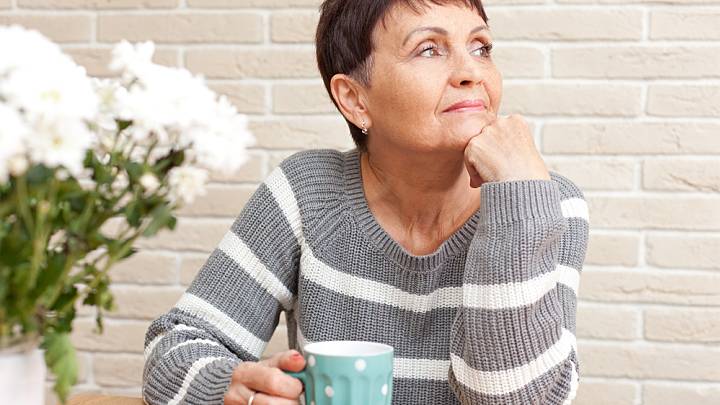Bladder Infection Home Remedies

Medically reviewed by
Dr Nicholas AntonakopoulosLast reviewed: 23 May 2019
Natural Cures: Are They Effective?

Key takeaways
Home remedies can improve your cystitis by helping your body fight off infections
Stay hydrated, and use foods with vitamin C, as well as garlic and parsley to support your body
Prevent future infections by staying hydrated, wearing loose cotton underwear, and don’t clean your genitals excessively
Also avoid waiting to go to the toilet, always try to urinate after sex, and practice good front-to-back wiping technique
If home remedies aren’t working, consider prescription antibiotics to treat your infections
There are many effective home remedies which can help you get rid of cystitis. Even when home remedies don’t suffice on their own they can be used to support an antibiotic treatment, such as MacroBid or Trimethoprim.
Using the right remedies for bladder infection can make a huge difference in curing the infection or preventing repeated bouts, especially in women who suffer from recurrent bladder infections.

No results found.
Please check your spelling or try another treatment name.
Alternative cystitis treatments
Your diet plays an important role in curing cystitis. Bladder infections are often caused by E.coli bacteria. Drinking plenty of fluids throughout the day helps your body flush out bacteria and fight the infection.
You should:
- Drink 2–3 litres of fluids (water will do just fine) each day
- Go to the bathroom as often as you need to – don't hold it in
- Avoid drinking alcohol, coffee or citrus juices (orange, lemon, lime, grapefruit), as they can irritate the bladder
- Avoid drinking sugary drinks
- Drink cranberry juice to prevent future infections (this will not heal current infections but may prevent future bouts). However, do not drink cranberry juice if you are taking a blood-thinning medication such as warfarin
- Get more Vitamin C (for example from leafy green vegetables and tomatoes)
You should keep on drinking lots of fluids for 2–3 days after the symptoms have gone. Natural therapy can also be used to prevent cystitis, the general idea being that you should maintain a healthy immune system. Your GP can advise you on the best options and diet for preventing bladder infection (e.g. antimicrobial herbs such as garlic and parsley).
Good hygiene
Make sure you urinate as frequently necessary to prevent your urine from resting in your bladder for a long period of time (as this allows bacteria to multiply). Drink plenty of fluids to ensure that any bacteria in your bladder get flushed out. Try to empty your bladder completely every time you urinate. When going to the toilet, make sure you wipe front to back (and not back to front) to avoid transferring germs to the opening of the urethra.
In order to relieve pain from cystitis, you can use a heat pad or a warm bottle on your tummy. Alternatively, you can sit in a bath or a shallow bucket filled with warm water to ease the pain. Do not add anything else to the bath, unless your doctor suggested it.
Preventative home remedies
Remember to drink plenty of fluids every day – not only when you have cystitis. Avoid wearing very tight clothes and wear loose, cotton underwear. If you have already had cystitis, the following recommendations are important if you want to prevent another infection. Avoid using douches, soaps or deodorants in your vaginal area as this usually destroys the natural environment and allows certain bacteria to grow. After having a shower, try to pat dry the vaginal and anal areas rather than rubbing them. Avoid rubbing these areas as this can irritate your skin.
It is also helpful to urinate after sex in order to get rid of any bacteria that have been transferred. Finally, treat any sexually transmitted infection (STI) or vaginal infection as early as possible, before they trigger a bout of cystitis (e.g. thrush or trichomoniasis).
What to do when home remedies aren't enough
If the pain lasts for more than one or two days, you should see your doctor. You can ask for painkillers while you're being treated. The standard antibiotic course of MacroBid or Trimethoprim for an uncomplicated case of cystitis lasts for three days. Make sure you take the antibiotic exactly as prescribed by your doctor – even once the symptoms have disappeared.

Dr Nicholas Antonakopoulos graduated from the University of London in 2006. He did his postgraduate training in hospitals in the London area, and he trained for four years in Trauma and Orthopaedic Surgery before completing his training in General practice in 2015.
Meet our doctorsLast reviewed: 23 May 2019
-
Bent, S. et al (2002). Does this woman have an acute uncomplicated urinary tract infection? JAMA; 287: 2701. [online] Available at: https://pubmed.ncbi.nlm.nih.gov/12020306/. [accessed 13th May 2021]
-
Domenici, L. et al (2016). D-mannose: a promising support for acute urinary tract infections in women. A pilot study. European Review for Medical and Pharmacological Sciences; 20(13): 2920-5. [online] Available at: https://pubmed.ncbi.nlm.nih.gov/27424995/. [accessed 13th May 2021]
-
Falagas, M. E. et al (2009). Antibiotics versus placebo in the treatment of women with uncomplicated cystitis: a meta-analysis of randomized controlled trials. Journal of Infection; 58(2): 91-102. [online] Available at: https://pubmed.ncbi.nlm.nih.gov/19195714/. [accessed 13th May 2021]
-
Foxman, B. and Frerichs, R. R. (1985). Epidemiology of urinary tract infection: II. diet, clothing, and urinary habits. American Journal of Public Health; 75(11): 1314-7. [online] Available at: https://pubmed.ncbi.nlm.nih.gov/4051067/. [accessed 13th May 2021]
-
Guay, D. R. (2009). Cranberry and urinary tract infections. Drugs; 69: 775. [online] Available at: https://pubmed.ncbi.nlm.nih.gov/19441868/. [accessed 13th May 2021]
Cystitis bladder infections are caused by bacteria and need to be treated with antibiotics. ZAVA offers a variety of treatment through a convenient, discreet service.







